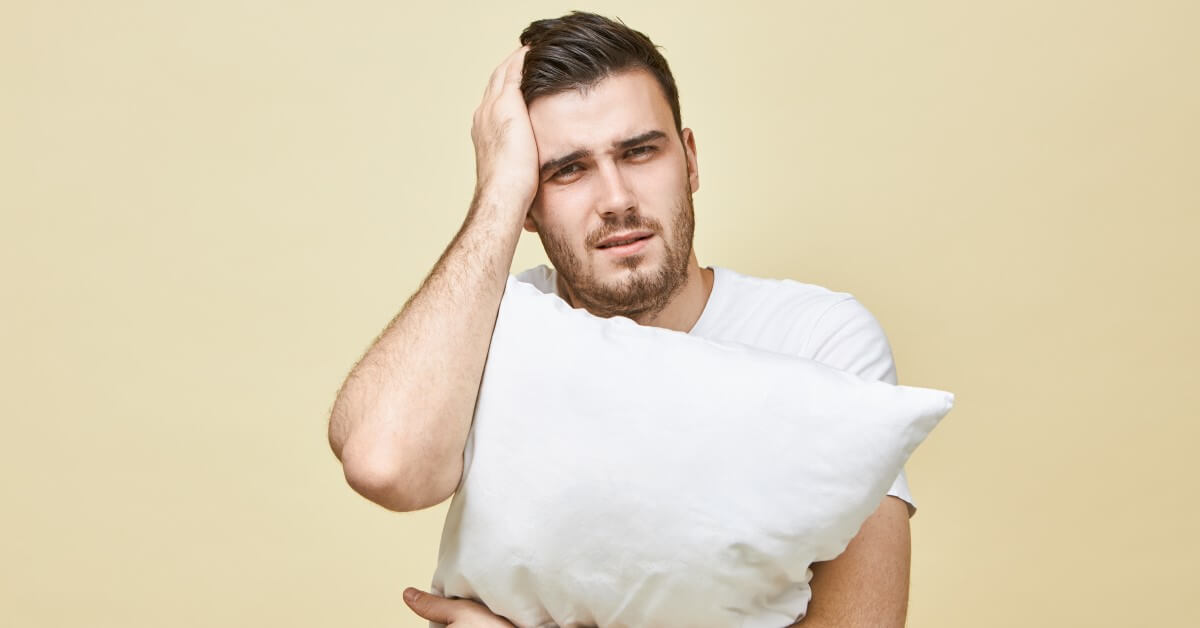Alternate Sleep Inducing Supplements | Avoiding a Melatonin Hangover |
Cognitive Behavioral Therapy for Insomnia
Overview
There are countless sleep supplements on the market, which is quite possibly a reflection of the overall negative sleep trends affecting our society, and that’s even before the Coronavirus pandemic, which certainly didn’t help.
Most people are familiar with sleeping aids, such as melatonin, but an unfortunate side effect for many of these is a next-day “hangover,” characterized by grogginess, lower alertness levels, and an overall feeling of not being refreshed.
This side-effect leads to the question: Could sleep supplements that help you sleep and not give you the dreaded sleep hangover exist? The answer is a resounding ‘yes,’ and sometimes, a few tweaks can make even a popular hangover-inducing sleep aid refreshing instead. Keep reading as we review alternate sleep-inducing supplements.
Alternate Sleep-Inducing Supplements
1) Adaptogens
This group of herbs, roots, and fungi has been used in traditional Eastern medicines for centuries to positively affect our bodies’ abilities to handle mental and physical stresses.
Studies have found that the compounds in some adaptogens do this by controlling the release of the stress hormone cortisol[1]. When cortisol is well-controlled, we can get to a better night’s sleep easier.
Adaptogens specifically linked to improved sleep include Ashwagandha, American Ginseng, Schisandra, and Valerian. These are all available in health food stores.
2) Magnesium
A mineral that is a natural muscle relaxer, magnesium is so essential that every function in the human body is affected by it. But what makes it an advocate for sleep is its ability to relax the body and help you sleep longer.[2]
Magnesium’s additional effect is that it increases the sleep hormone melatonin and reduces the stress hormone cortisol.
Additional studies have found that magnesium can reduce the symptoms of Restless Legs Syndrome (RLS).[3]
One of the best parts of this mineral as a sleep aid? No hangover the next day!
2) CBD/CBN
Cannabidiol (CBD) and cannabinol (CBN) are two of the many compounds that make up cannabis, and Delta-9 tetrahydrocannabinol (THC) is currently the most studied.
Both of these compounds of the marijuana plant are non-psychoactive and won’t give you the “high” associated with recreational use of the drug.
Although thorough clinical research on the efficacy of cannabis on sleep is still in its infancy, early results indicate that CBD/CBN may help with chronic pain, anxiety, and insomnia.
CBD may even hold promise for REM sleep behavior disorder and excessive daytime sleepiness.[4] This finding means a good night’s sleep without any next-day after-effects may be a capsule, tincture, or piece of gummy away.
Check your local laws for guidance on purchase and usage.
Avoiding a Melatonin Hangover
Yes, the hangover from taking this popular, natural sleep aid is real for many people.
Feelings of grogginess, tiredness & lack of clarity can carry over from sleep into the following day from the sleep hormone supplement if its use isn’t dosed and timed correctly.
What to do? If you must take melatonin (it’s recommended as a short-term sleep aid only), start with the smallest possible dose, such as 0.5mg to about 3mg.
Remember that melatonin takes about an hour to kick in fully and, depending on the dosage, lasts an average of around 4-6 hours.[5]
Try to time the dosage so it doesn’t carry over into the following day by avoiding late-night and mid-night dosing.
Cognitive Behavioral Therapy for Insomnia
Insomnia can emotionally and physically derail your life, torturing your day-to-day existence.
However, a first-line treatment called cognitive behavioral therapy for insomnia (CBT-I) is considered the gold standard for managing sleeplessness. It’s an evidence-based therapeutic approach that’s used to manage insomnia symptoms.
CBT-I incorporates different modalities, including cognitive restructuring, and behavioral and educational interventions. A CBT-I program gives you the tools to help realign your thoughts and behaviors with processes more conducive to sleep.
These programs are offered online, and typically last 6 weeks. They use videos, tools, and tactics to help guide you through the process of relearning how to sleep. This information is invaluable in gaining a lifetime of restorative sleep, helping you forgo the use of supplements and sleep gadgets.
Conclusion
While searching for that oft-elusive good night’s sleep, one can come across a range of natural products that nevertheless have the unwanted side effect of making us feel drowsy, groggy, or ‘hungover’ the next day.
Emerging research points to natural choices to help with insomnia, including CBT-I. Some better-known and even ancient sleep remedies are being rediscovered for a chance at a restful night and refreshed, alert day to follow.
References:
- Panossian, A., & Wikman, G. (2010). Effects of Adaptogens on the Central Nervous System and the Molecular Mechanisms Associated with Their Stress-Protective Activity. Pharmaceuticals (Basel, Switzerland), 3(1), 188–224. https://doi.org/10.3390/ph3010188
- Cao Y, Zhen S, Taylor AW, Appleton S, Atlantis E, Shi Z. Magnesium Intake and Sleep Disorder Symptoms: Findings from the Jiangsu Nutrition Study of Chinese Adults at Five-Year Follow-Up. Nutrients. 2018 Sep 21;10(10):1354. doi: 10.3390/nu10101354. PMID: 30248967; PMCID: PMC6212970.
- Magdolna Hornyak, Ulrich Voderholzer, Fritz Hohagen, Mathias Berger, Dieter Riemann, Magnesium Therapy for Periodic Leg Movements-related Insomnia and Restless Legs Syndrome: An Open Pilot Study, Sleep, Volume 21, Issue 5, August 1998, Pages 501–505, https://doi.org/10.1093/sleep/21.5.501
- Babson KA, Sottile J, Morabito D. Cannabis, Cannabinoids, and Sleep: a Review of the Literature. Curr Psychiatry Rep. 2017 Apr;19(4):23. doi: 10.1007/s11920-017-0775-9. PMID: 28349316.
- Hallare J, Gerriets V. Half Life. [Updated 2021 Aug 23]. In: StatPearls [Internet]. Treasure Island (FL): StatPearls Publishing; 2022 Jan-. Available from: https://www.ncbi.nlm.nih.gov/books/NBK554498/






